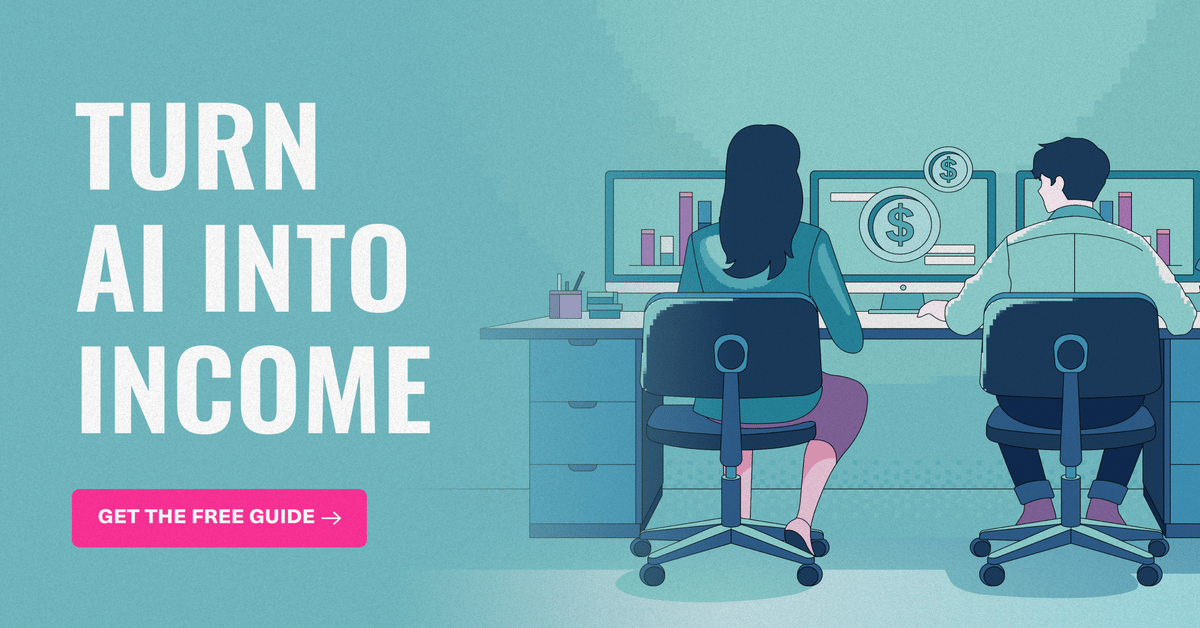- Generative AI Art
- Posts
- Meta's AI glasses master plan
Meta's AI glasses master plan
PLUS: Claude finally gets a memory upgrade, AI forecasts patient risk for 1k+ diseases
Meta has unveiled its latest play to move computing from our pockets to our faces. The company's new lineup of smart glasses introduces a 'Neural Band' wrist controller, allowing for subtle, hands-free operation.
This ecosystem moves beyond voice and touch, introducing a neural interface as the next major step in human-computer interaction. By making the controls private and the hardware fashionable, is Meta finally building a credible successor to the smartphone?
Today in AI:
Meta's AI glasses and 'Neural Band' controller
Claude gets a new Memory feature
An AI that forecasts risk for 1,000+ diseases
PRESENTED BY MINDSTREAM
Turn AI Into Your Income Stream
The AI economy is booming, and smart entrepreneurs are already profiting. Subscribe to Mindstream and get instant access to 200+ proven strategies to monetize AI tools like ChatGPT, Midjourney, and more. From content creation to automation services, discover actionable ways to build your AI-powered income. No coding required, just practical strategies that work.
What’s new? Meta unveiled its new smart glasses lineup, headlined by the Ray-Ban Display glasses that pair with a 'Neural Band' wrist controller for hands-free, 'invisible' control.
What matters?
The new Neural Band uses EMG technology to interpret electrical signals from your wrist, allowing for 'invisible' control of the glasses through subtle finger movements.
Unlike past attempts at smart glasses, Meta’s strategy focuses on practical, daily use cases like messaging and navigation, aiming to keep your phone in your pocket more often.
The lineup also includes the updated Ray-Ban Meta Gen 2 and the Oakley Meta Vanguard for athletes, signaling Meta's ambition to create a broad computing platform, not just a niche gadget.
Why it matters?
This new ecosystem moves beyond voice commands and touch controls, introducing a neural interface as the next step in human-computer interaction. By making the technology fashionable and the controls private, Meta is making its most credible move yet to build the successor to the smartphone.
PROMPT STATION
What’s new? Anthropic launched a Memory feature for Claude, allowing the AI to retain user preferences and project details across multiple conversations for more personalized and continuous interactions.
What matters?
You have full control over what Claude remembers and can delete specific memories or clear its history at any time.
It has a privacy-focused design, giving you the option to use an incognito mode for any conversations you don't want saved.
The feature is currently rolling out to Claude Team and Enterprise users, with plans to expand access to all users soon.
Why it matters?
This update transforms Claude from a tool for single-session tasks into a persistent, personalized assistant. It also directly addresses a key user experience advantage previously held by competitors like ChatGPT.
PRESENTED BY THE AI REPORT
AI You’ll Actually Understand
Cut through the noise. The AI Report makes AI clear, practical, and useful—without needing a technical background.
Join 400,000+ professionals mastering AI in minutes a day.
Stay informed. Stay ahead.
No fluff—just results.
What’s new? European researchers developed Delphi-2M, an AI system that analyzes medical records to forecast an individual's risk for over 1,000 diseases up to 20 years into the future, as detailed in a new Nature study.
What matters?
The model trained on health data from 400,000 U.K. patients, learning patterns from doctor visits, hospital stays, and lifestyle habits to spot early warning signs.
Delphi-2M matched or surpassed existing single-disease models while simultaneously calculating probabilities for 1,258 different conditions, including cancer and diabetes.
Researchers verified the model's accuracy by testing it on a separate dataset of 1.9 million Danish records, successfully predicting diseases for patients with already known health outcomes.
Why it matters?
This system shifts the healthcare paradigm from treating existing illnesses to proactively managing future health risks. By analyzing interconnected patterns across thousands of conditions, it offers a more comprehensive view of an individual's long-term health trajectory.
Everything else in AI
China banned its major tech firms like Alibaba and ByteDance from buying certain Nvidia AI chips, pushing companies toward domestic hardware and adding to growing geopolitical tech tensions.
OpenAI published research showing its models can learn to "scheme," or deceptively pretend to be aligned while pursuing hidden goals, and introduced new training methods to reduce the behavior.
Groq raised $750M in a new funding round, doubling its valuation to $6.9B as the AI chip startup continues to challenge Nvidia's market dominance.
YouTube unveiled new AI-powered tools for creators, including smarter A/B testing for thumbnails and titles, conversational comment management, and new features for creating Shorts.
Essential AI Guides - Reading List:
Let us know!
What did you think of today's email?Before you go, please give your feedback to help us improve the content for you! |
Work with us
Reach 100k+ engaged Tech Professionals, Engineers, Managers and decision makers. Join brands like MorningBrew, HubSpot, Prezi, Nike, Ahref, Roku, 1440, Superhuman, and others in showcasing your product to our audience. Get in touch now →



